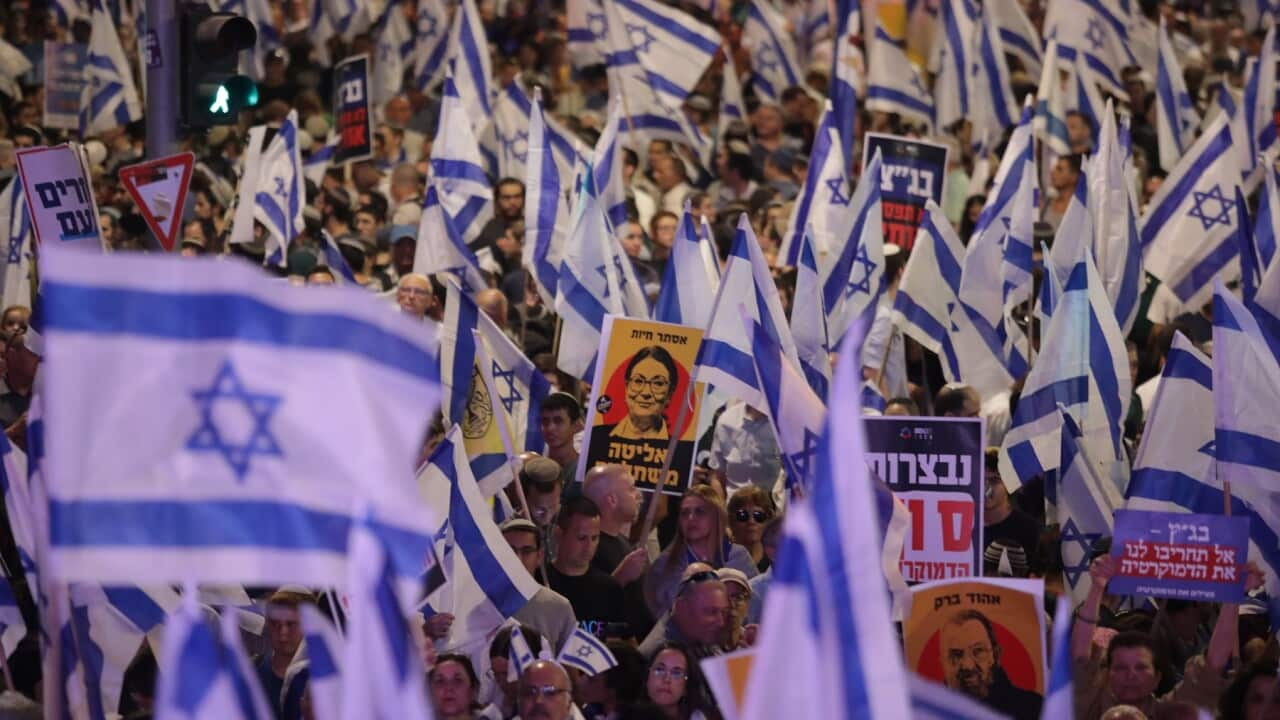Both sides express fear of a breakdown in democracy, but in response to entirely opposite outcomes.
This comes as Israel confronts a potential constitutional crisis, ahead of a hearing on the legality of the first major bill next week.
TRANSCRIPT
Several thousand protesters supporting the Israeli government's judicial overhaul rallied in front of the Supreme Court in Jerusalem after nearly nine months of protests in opposition to the proposed reforms.
It comes before a pivotal hearing next week on the legality of the first major bill of the overhaul.
Prime Minister Benjamin Netanyahu's coalition bill, which passed in July, bans the Supreme Court from preventing government decisions it deems unreasonable.
Protesters expressed hostility towards what they describe as the elite class, many flourishing signs with the words "end the judicial dictatorship" and "the elites are taking control".
One unidentified protester spoke to these concerns.
"What you can see here is demonstration for basic, you know, reform the justice system in order just to bring democracy according to definition not according to leftist elite."
Much unlike those who have been protesting against the proposed reforms for months, protester Charlie Tsakishvilie, believes the powers of the Bagatz - or Supreme Court - threaten Israel's democracy.
"This is the demonstration and we are coming here to send a message not only to Supreme Court also to our leaders that the Supreme Court doesn't have the authority to break down the basic rules that our parliament made because if Supreme Court breaks down our basic rules it means that the Supreme Court is dictator."
This is in complete opposition to the concerns expressed by protesters for nearly nine months, the largest grassroots protest in Israel's history.
Those opposed to the judicial overhaul are against what they describe as a quashing of Supreme Court checks and balances on the government.
They fear it further encroaches on Israel's democracy, which hosts a single parliamentary chamber, a largely ceremonial presidency and no constitution.
They add it will open the door to corruption because it makes it easier for government as a whole or individual ministers to hire and fire officials for potentially the wrong reasons.
These are the words of protester Nurit Peri just days ago, echoing the same concerns of democratic decline as pro-government protesters, but in response to an overhaul of the judiciary.
"I am here to tell everyone how scared I am that Israel will become a dictatorship instead of democracy. I was born here, I love this country and I am really afraid that the changes they want to do will destroy the country."
For protester Evan Tavosh, such protesters have been given too much space to voice their opposition.
"I am here because we had enough of one side only demonstrating, talking, expressing views which are completely not representing the major part of Israeli society, and it’s about time that the silent majority will also raise its voice."
It's clear the government's plan has sown divisions among the Israeli public and even within the military, long viewed as apolitical, with concerns about war-readiness raised on both sides of the debate.
In August, Israel's Supreme Court began hearing the first in a series of appeals linked to a judicial overhaul undertaken by the coalition which has set off an unprecedented domestic crisis.
If the justices oppose the law, Israel could confront a constitutional crisis.













